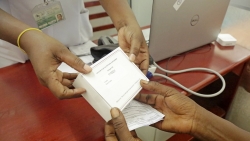
The project aimed to address the significant health burden posed by hypertensive disorders during pregnancy in low- and middle-income countries (LMICs), particularly in Tanzania. Calcium supplementation during pregnancy reduces the risk of preeclampsia by more than 50%, and that of preterm births by about 25%. As a result, the World Health Organization (WHO) recommends calcium supplementation during pregnancy (1500 – 2000 mg/day) for population with low dietary calcium intake. Despite the proven efficacy and WHO recommendation, calcium supplementation is not standard of antenatal care in most LMICs mainly due high cost of the supplements and complexity of the suggested dosing schedule. This study in Tanzania sought to generate evidence on the potential non-inferiority of a lower dose of calcium (500 mg) compared to the WHO-recommended dose (1500 mg) in preventing preeclampsia and preterm birth, while also assessing the acceptability and adherence to the WHO recommended dose.
Achievements included the completion of data analysis and manuscript writing for publication in the New England Journal of Medicine, successful follow-up of participants in the implementation cohort study, and qualitative data collection on the experiences of using calcium supplements during pregnancy. Biomarker analysis of collected samples is ongoing in Toronto, Canada. Challenges encountered during implementation of the project included poor clinic attendance among participants and difficulties in obtaining delivery information.
Collaborators included Harvard T.H. Chan School of Public Health, Ifakara Health Institute (IHI), and Muhimbili University of Health and Allied Sciences (MUHAS). The project disseminated its findings to the Tanzania Ministry of Health and stakeholders during the 5th AAPH Annual Symposium in January 2024. Future plans involve further analysis on biomarker data and finalizing manuscripts for publication.
Despite challenges, the project made significant progress and has the potential to influence policy guidelines in Tanzania and beyond. By providing evidence for effectiveness of a lower dose of calcium supplementation, these findings will enable most LMICs to afford and adopt this important intervention, improve uptake and adherence. Ultimately, it will lead to improved maternal and neonatal health outcomes and reduce morbidity and mortality associated with hypertensive disorders during pregnancy.
VIEW MORE: https://youtu.be/MdUk_fkDOcg?si=OpB8Ox3MSTQMLY0I